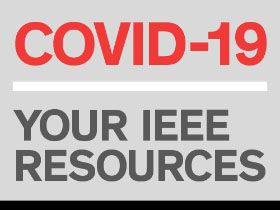First Human Trial for COVID-19 Antibody Drug Begins

Just three months after the start of the pandemic, drugmaker Eli Lilly has announced the first human test of an antibody treatment designed to fight the novel coronavirus.
The potential drug, developed by Lilly, Vancouver-based biotech company AbCellera, and the Vaccine Research Center at the U.S. National Institute of Allergy and Infectious Diseases, was identified by screening over 5 million immune cells in the blood of one of the first people in North America to recover after having contracted COVID-19.
The drug candidate is being tested in a randomized, placebo-controlled safety trial with 32 patients hospitalized for COVID-19 at major medical centers in the U.S.
It is the first custom therapy being brought forward for COVID-19," says Carl Hansen, cofounder and CEO of AbCellera. Hansen was previously a professor studying microsystems and nanotechnology at the University of British Columbia. Through years of working on our technology, specifically for pandemic response, we were in a position to make a difference."
In 2018, AbCellera joined DARPA's Pandemic Prevention Platform (P3) program to develop technologies to deliver rapid medical countermeasures to emerging pandemics. After a simulated run to demonstrate the company's platform for human antibody discovery against pandemic influenza, this year AbCellera was planning another simulation against SARS, a type of coronavirus.
Then a real pandemic began.
AbCellera's first antibody to move into human trials appears to be a world record for the fastest development of an antibody from initial screen to first human trials.On 25 February, the company received the recovered COVID-19 patient's blood sample. With that sample, they set out to discover an antibody-a protective Y-shaped protein produced by the body to bind foreign substances such as viruses and bacteria, and neutralize them or recruit immune cells to destroy them. The specific antibody for which they were on the lookout would bind the outer spike protein on the new coronavirus, SARS-CoV-2, therefore blocking the virus from entering human cells and preventing infection.
To sift through patient blood to find a protective antibody, the AbCellera team employed a set of technologies. First, they passed the blood cells-containing millions of immune cells, each of which makes a different antibody-through microfluidic devices that separate each immune cell into its own tiny isolation chamber. There, those cells secrete antibodies, some of which will stick to bits of the coronavirus within the chambers.
Within three days, AbCellera had over 2,000 positive hits: antibodies that demonstrated some binding to the virus. For each hit, the team recovered the cells from their chambers and broke the cells open to extract and sequence the RNA instructions for individual antibodies.
Those sequences, some of which were repeats, were used to re-create more than 500 antibodies in the lab. Those antibodies were put through a battery of tests-among them one quantifying how well each antibody neutralized the virus. During these tests, the team accrued data on roughly 500 characteristics per antibody.
 Gif: AbCellera AbCellera's antibody visualization software, Celium.
Gif: AbCellera AbCellera's antibody visualization software, Celium. To narrow down 500 antibodies, each with 500 characteristics, the company turned to a proprietary visualization software called Celium; it helped them observe 250,000 overlapping properties and desired characteristics. If you can imagine trying to sift through that data on a spreadsheet, it would be an impossible task," says Hansen. Celium made organizing, comparing, and observing patterns in the large data set possible, he says. We built this recognizing there is a real bottleneck between what a machine can collate and understand, and what a person can actually interact with."
At that point, the company handed off the antibodies to partner Eli Lilly, a drug company with experience in running clinical trials and manufacturing new drugs. AbCellera and Lilly narrowed the candidates to a set of 190 antibodies, which they sent to the Vaccine Research Center for potency testing against the virus in cells and animals. By mid-April, the group had narrowed them down to 24 front-runners.
On 1 June, Eli Lilly announced that it had begun dosing patients with one of those finalists, LY-CoV555, for the treatment and prevention of COVID-19. Unlike a vaccine, antibody treatments will provide only short-term protection from the virus, and may help treat those exposed or infected.
LY-CoV555 is AbCellera's first antibody to move into human trials, and appears to be a world record for the fastest development of an antibody from initial screen to first human trials (a process that can normally take three to five years). By searching very deeply into the immune system early on, we were able to find enough antibodies so that when you start to apply all these filters you need, to make sure you've got something you can bring to the clinic, you have it in the set," says Hansen.
AbCellera has since screened more blood samples from recovered COVID-19 patients and identified additional potent antibodies. There is a very large collection of antibodies coming up behind this," says Hansen. We are running them systematically through all of these tests...to try to figure out which one will be the next one to come to the clinic."
At least two other companies, Regeneron and GlaxoSmithKline, are expected to soon begin testing antibody drugs for COVID-19.
< Back to IEEE COVID-19 Resources